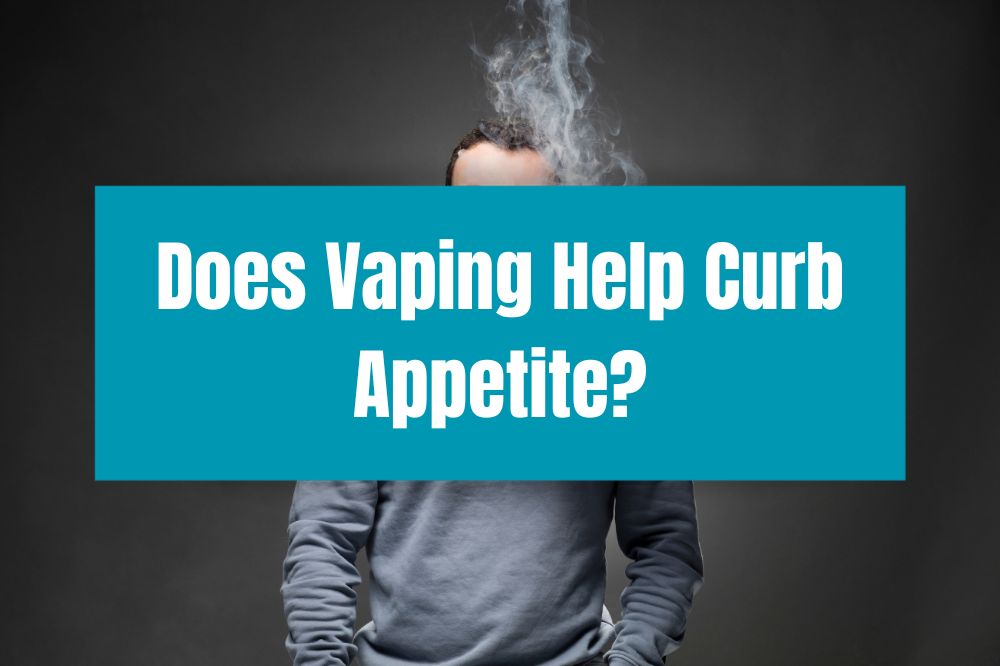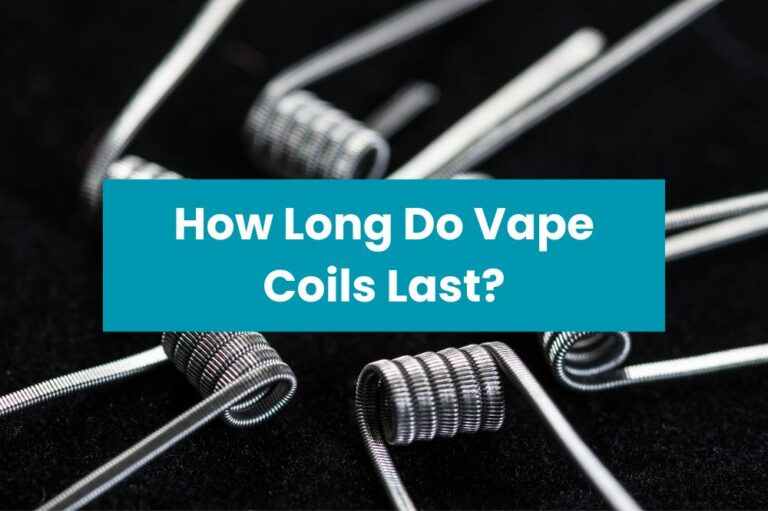Does Vaping Help Curb Appetite?

If you’re trying to lose weight, you might have heard that vaping can help curb your appetite. But does vaping really help you lose weight? While some people claim that vaping can suppress their appetite and reduce food cravings, there isn’t enough scientific evidence to support this claim.
Nicotine, the addictive substance found in most vaping products, has been shown to reduce appetite and food intake in some studies. However, these studies were conducted on animals, and the effects of nicotine on appetite suppression in humans are still unclear. Additionally, nicotine is a stimulant that can increase heart rate and blood pressure, which can be dangerous for people with certain health conditions.
Overall, while vaping may have some potential benefits for smokers who are trying to quit, it’s not a safe or effective weight loss strategy. If you’re looking to lose weight, it’s important to focus on healthy eating habits, regular exercise, and other lifestyle changes that are supported by scientific evidence.
Understanding Vaping
If you’re curious about vaping and its impact on appetite, it’s essential to understand what vaping is and how it works. Vaping involves inhaling a liquid that’s heated to produce a vapor, which is then inhaled into the lungs. The liquid, known as e-juice, typically contains a mix of propylene glycol, vegetable glycerin, flavorings, and nicotine.
Nicotine, a common ingredient in many e-juices, is known to be an appetite suppressant. This means that it can help reduce feelings of hunger and cravings for food. However, it’s important to note that not all e-juices contain nicotine, and the effects on appetite can vary depending on the individual and the specific e-juice used.
SPIRITBAR Katana BP10000
- Slender, leather-textured body reminiscent of a katana handle for an authentic samurai feel
- Unique samurai-inspired e-liquid flavor - fruity yet not too sweet, with a luxurious, elegant aroma
- Powerful 650mAh rechargeable battery for extended vaping time
- Large 18ml e-liquid capacity and 10,000 puff capacity
- Advanced mesh coil and e-liquid & power display screens for optimal vaping experience
The special juice captures the essence of the samurai spirit with its rich, smoothly pulsating flavor that brings new satisfaction with every puff. The device's slender, leather-textured design evokes the grip of a samurai's katana, making this product a perfect choice for beginner vapors.
In addition to the potential appetite-suppressing effects of nicotine, some people may find that the act of vaping itself helps curb their appetite. This could be due to the hand-to-mouth motion of vaping, which can mimic the motion of eating and help satisfy cravings for food.
While there is some evidence to suggest that vaping can help reduce appetite and food cravings, it’s important to remember that vaping is not a weight loss solution. It’s still essential to maintain a healthy diet and exercise regularly to achieve and maintain a healthy weight. Additionally, vaping can have potential health risks, and it’s important to speak with a healthcare provider before starting or continuing to use any vaping products.
Appetite and Its Mechanisms
When it comes to appetite, there are several mechanisms at play that can influence how much you eat. Two of the most important mechanisms are hunger hormones and brain signals.
Hunger Hormones
Hunger hormones, such as ghrelin and leptin, play a vital role in regulating appetite. Ghrelin is produced in the stomach and signals the brain to increase appetite, while leptin is produced in fat cells and signals the brain to decrease appetite.
SPIRITBAR Jack’s Flask 9000 Puffs
- Stylish pirate flask-shaped body providing an exciting vaping experience
- Delivering up to 9000 puffs per device
- 20ml e-liquid capacity with 50mg nicotine strength for satisfying throat hit
- Specialized pirate-themed e-juice flavors for rich, swirling taste
- Premium mesh coil optimizes flavor profile for maximum vaping enjoyment
This disposable vape captures the daring spirit of the high seas with its flask styling and signature pirate e-juice flavors. The extraordinary battery life provides 9000 indulgent puffs for extended vaping pleasure. Live boldly and freely with the Jack's Flask - a legendary vaping experience fit for a pirate's adventures.
Nicotine, the primary ingredient in vaping products, has been shown to affect these hormones. Specifically, nicotine has been found to decrease ghrelin levels, which can lead to a decrease in appetite. However, more research is needed to fully understand the effects of nicotine on hunger hormones.
Brain Signals
The brain plays a crucial role in regulating appetite. Specifically, the hypothalamus, a region of the brain, is responsible for controlling appetite and food intake.
Nicotine has also been found to affect the hypothalamus. Specifically, it has been shown to activate neurons in the hypothalamus that are involved in regulating appetite. This activation can lead to a decrease in appetite and food intake.
Overall, while the mechanisms behind appetite regulation are complex, it is clear that nicotine can play a role in decreasing appetite. However, it is important to note that vaping should not be used as a weight loss tool and that more research is needed to fully understand the effects of nicotine on appetite regulation.
Vaping and Appetite
If you’re wondering whether vaping can help you curb your appetite, the answer is not straightforward. While some studies suggest that vaping can reduce hunger and food cravings, others show conflicting results.
Nicotine’s Role
Nicotine is a stimulant that can suppress appetite and increase metabolism. According to a study published in the journal “Appetite,” nicotine can reduce food intake and body weight. However, the study also found that the effect of nicotine on appetite and weight loss was short-term and may not be sustainable in the long run.
Psychological Factors
Vaping may also have a psychological effect on appetite. Some people use vaping as a way to distract themselves from food cravings or as a replacement for snacking. However, this approach may not be effective for everyone and may even lead to overeating if not done in moderation.
It’s important to note that vaping is not a magic solution for weight loss or appetite control. While some people may experience a temporary reduction in hunger and cravings, others may not see any significant changes. Additionally, vaping comes with its own set of health risks and should not be used as a substitute for healthy eating habits and regular exercise.
Overall, if you’re considering vaping as a way to control your appetite, it’s important to consult with a healthcare professional and weigh the potential risks and benefits.
SPIRITBAR Katana BP10000
- Slender, leather-textured body reminiscent of a katana handle for an authentic samurai feel
- Unique samurai-inspired e-liquid flavor - fruity yet not too sweet, with a luxurious, elegant aroma
- Powerful 650mAh rechargeable battery for extended vaping time
- Large 18ml e-liquid capacity and 10,000 puff capacity
- Advanced mesh coil and e-liquid & power display screens for optimal vaping experience
The special juice captures the essence of the samurai spirit with its rich, smoothly pulsating flavor that brings new satisfaction with every puff. The device's slender, leather-textured design evokes the grip of a samurai's katana, making this product a perfect choice for beginner vapors.
Scientific Studies on Vaping and Appetite
While there is still ongoing research on the effects of vaping on appetite, some scientific studies suggest that nicotine, the main ingredient in most e-cigarettes, may have appetite-suppressing effects. A 2021 study found that nicotine reduces appetite and food intake, leading to weight loss in some individuals [1].
Another cross-sectional population study conducted in 2019 found that e-cigarettes may help quitters to control their weight through continued exposure to the appetite-suppressant effects of nicotine and behavioral aspects of vaping [2].
However, it is important to note that the long-term effects of vaping on appetite and weight control are still not fully understood. Additionally, some researchers have raised concerns about the potential health risks associated with long-term vaping, such as lung damage and respiratory issues [3].
Overall, while some studies suggest that vaping may have appetite-suppressing effects, more research is needed to fully understand the relationship between vaping and appetite, as well as the potential long-term health risks associated with vaping.
References
[1] Medical News Today. (2021). Vaping and weight loss: Can it help? Retrieved from https://www.medicalnewstoday.com/articles/does-vaping-make-you-lose-weight
[2] Farsalinos, K. E., & Polosa, R. (2019). Safety evaluation and risk assessment of electronic cigarettes as tobacco cigarette substitutes: a systematic review. Therapeutic Advances in Drug Safety, 10, 2042098618808499.
[3] National Institute on Drug Abuse. (2021). What are the risks of e-cigarettes for youth, young adults, and pregnant women? Retrieved from https://www.drugabuse.gov/publications/research-reports/e-cigarettes-vaping-health-risks.
Potential Risks of Vaping
While there are some potential benefits to using vaping as a way to curb your appetite, it’s important to also consider the potential risks. Here are a few things to keep in mind:
Nicotine Addiction
One of the biggest risks associated with vaping is the potential for nicotine addiction. While nicotine can help suppress your appetite, it can also lead to a host of other health problems, including an increased risk of heart disease, stroke, and lung cancer.
Lung Damage
Vaping can also cause lung damage, particularly if you use e-liquids that contain harmful chemicals or toxins. Inhaling these substances can cause inflammation in your lungs, which can lead to chronic bronchitis, emphysema, and other respiratory problems.
Exposure to Secondhand Vapor
Finally, it’s important to remember that vaping can also expose others around you to secondhand vapor. While the long-term effects of secondhand vapor exposure are still being studied, it’s clear that it can irritate the eyes, nose, and throat, and may also exacerbate asthma symptoms in some people.
Overall, while vaping may be a useful tool for some people looking to curb their appetite, it’s important to weigh the potential risks and benefits carefully before deciding whether or not to use it. If you do choose to vape, be sure to use high-quality products and e-liquids, and avoid exposing others to secondhand vapor whenever possible.
Healthier Alternatives to Curb Appetite
If you’re looking to curb your appetite, there are many healthier alternatives to vaping that you can try. Here are a few options to consider:
1. Drink Water
Drinking water before and during meals can help you feel fuller and eat less. Additionally, staying hydrated can help prevent overeating caused by confusion between hunger and thirst.
2. Eat More Protein
Incorporating more protein into your diet can help you feel fuller for longer periods of time. Protein-rich foods include chicken, fish, eggs, tofu, and legumes.
3. Snack on Fruits and Vegetables
Fruits and vegetables are low in calories and high in fiber, which can help you feel full and satisfied. Snacking on these healthy foods can also provide your body with important nutrients.
4. Try Mindful Eating
Mindful eating involves paying attention to your food and being present in the moment while you eat. This can help you tune in to your body’s hunger and fullness signals, and prevent overeating.
5. Get Enough Sleep
Lack of sleep can disrupt hormones that regulate hunger and appetite, leading to increased cravings and overeating. Aim to get seven to eight hours of sleep per night to help regulate your appetite.
By incorporating these healthier alternatives into your routine, you can effectively curb your appetite without turning to vaping or other potentially harmful methods.








